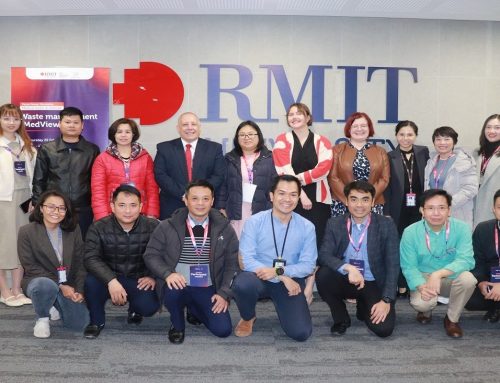07.07.2021
By Dr. Hella Abidi
The HUMLOG Insitute’s Board Award Doctoral Theses winner 2021
Which logistics, storage and transport processes have an impact on the supply chains of humanitarian organization? This question is the focus of the research visit at ‘Médecins Sans Frontières in Zimbabwe by Dr. Hella Abidi. Because understanding the processes and organizational levels and their responsibilities, identifying objectives and success factors and knowing the actors of the supply chain are crucial.
Zimbabwe is one of the countries in the world most affected by HIV and AIDS. This is one of the reasons why ‘Médecins Sans Frontières’ focuses on two areas: education and providing the population with medicines that make it possible to live with an HIV infection for as long as possible. The infrastructure of the country places high demands on material flow systems, warehouse organization, information flow, premises and business processes as well as audit systems.
For example, when the patients need to pick up their medicines, they have to travel long distances, especially in rural areas. For the humanitarian organization, this means that it must not only ensure that its central warehouse is always well stocked, but also that the medicines reach the hands of the recipients in good condition and with a minimum expiry date of three months.
Looking at this supply chain of Médecins Sans Frontières, Dr. Abidi identified some factors that are already contributing to the success of the supply chain processes:
- Integrate the goal of the aid project into the supply chain: Logistics processes in the humanitarian supply chains are not about cost efficiency, but about reaching as many affected people as possible through campaigns to quickly improve their situation.
- Quality: providing medical care in time, offering good treatment to beneficiaries, and fulfilling the requirement of medical and social dimension
- Supply chain management: The key processes in the humanitarian supply chain are procurement, warehouse and distribution.
- Employees: The employees of ‘Médecins Sans Frontières’ are flexible and react proactively. They manage stock and inventory accurately so that medicines do not have to be transferred to other projects shortly before their expiry date.
- Budget money for infrastructure: Without their own technical equipment such as vehicles or computers, both medicines and information hardly reach those in need.
- Team performance: Projects are successful when the staff teams function well. And that is especially the case when there are both clear structures and sufficient resources.
- Cooperation and networking with other humanitarian organizations
The results of the study show that a successful supply chain is built on two essential pillars: material flow (providing high qualitative relief items) and information flow (sharing information along a supply chain). Besides these, human resources and ensuring the continuous education of employees are the most essential aspect in a supply chain, given that without motivated and educated employees, no relief operation worldwide can be made working. Furthermore that employees are those who have a high impact on the success of the supply chain as well as on the satisfied and helped beneficiaries. Last but not least the key performance drivers that define success and support humanitarian organizations in their performance are delivering a good service to customers, reliability, lead time, quality of goods and cost management of the supply chain.
Dr Hella Abidi completed her training as a forwarding clerk (Speditionskauffrau IHK) at Dachser SE in Cologne. During a stay at Dachser SE in Switzerland, she studied a part-time advanced vocational training as “Verkehrsfachwirtin (IHK)” at the Chamber of Commerce and Industry. Hella Abidi adopted various activities in the department of international transport planning, sales and customer service at Dachser SE in Mannheim and Cologne. In 2007, she started at the FOM University of Applied Sciences a part-time study program in business science, with the main subjects logistics and supply management. 2010, Hella Abidi finished her Master degree with success. For her thesis she was awarded with the BVL Thesis Award 2010. 2011 – 2015, she worked as a research associate in the BMBF project WiWeLo in line with the excellence cluster LogistikRuhr at the Institute of Logistics & Management Services (ild) of FOM University of Applied Sciences in Essen and as lecturer for logistics at the FOM University of Applied Sciences in Germany. September 2013, she started her PhD at the VU University Amsterdam. 2015 – 2016 Hella Abidi worked as a lecturer at Nottingham Business School, Nottingham Trent University, Nottingham (UK). Spring 2016, Hella Abidi restarted as a consultant research & development at Dachser SE in Kempten and as a senior lecturer at FOM University of Applied Sciences in Essen.
Read Dr. Hella Abidis thesis here.




